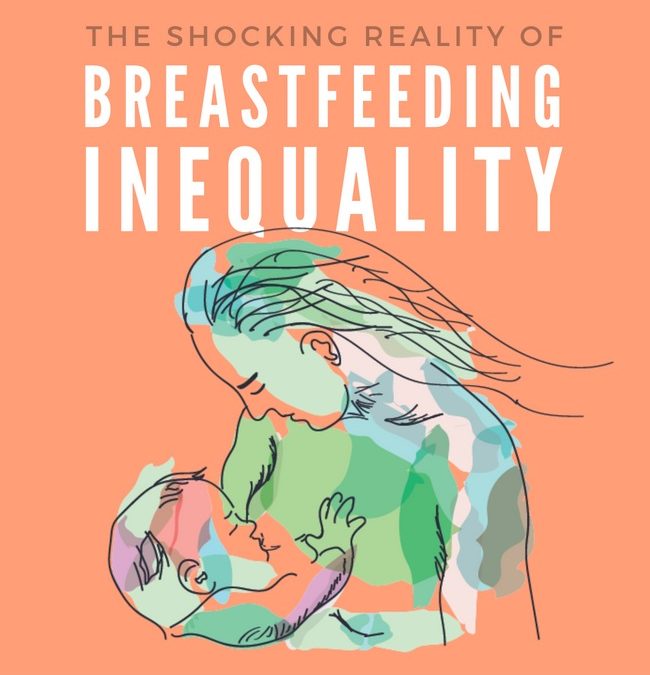I very rarely run guest posts, but when I got this pitch, I knew I wanted to run this one. It addresses the REAL issue with breastfeeding that not enough people talk about! Thanks to Neve for bringing up this important issue with this great infograph, and check out her blog at We the Parents.
This month is Breastfeeding Awareness Month. It’s intended to be a wonderful celebration of a beautiful ritual that unites mothers all over the world.
But, of course, even though breastfeeding may be the most natural thing in the world…if you don’t have your head in the sand, then you know it’s also become something of a divisive issue. The so-called ‘mommy wars’ have been waging for decades, and they don’t show any sign of subsiding.
And sure, “Breast vs Bottle” is a conversation worth having, but the typical mommy war debate totally skips over the most important issue: breastfeeding inequality.
Let me explain.
The big issue isn’t whether well-informed, well-educated, and well-off moms choose to breastfeed. Middle-class kids tend to receive better health care, parental involvement, and nutritious supplementary food even after they’re weaned. This means they get a good start in life – no matter how they’re fed as an infant.
The real issue is that a huge number of mothers do not have equal knowledge or opportunity to breastfeed when they want to.
Only 38% of mothers living in poverty breastfeed to 6-months, whereas 68% of wealthy mothers do. That’s a huge difference. And, of course, kids living in hardship tend not to have the best health care and don’t receive the most nutritious diet. This means that the very babies not being breastfed are the very ones who stand to gain the most in terms of health benefits.
This visual guide by We The Parents shows just how stark breastfeeding inequality has become.
Let’s reframe the debate
While it’s important to emphasize the importance of breastfeeding, even for middle-class moms, far more babies and mothers would be served if we made our online discussions be about breastfeeding inequality. How can all mothers who want to breastfeed get an equal opportunity to do so?
The solution will involve paid maternity leave and workplace lactation programs – especially in lower-paid jobs. It will also look at breastfeeding support both in hospital and the community. And it will question the routine use of supplementary formula in hospitals.
Mothers, let’s unite. Surely we can all agree that if a mom wants to breastfeed, she should be given the best chance to do so. Let’s focus our energy, words, and tweets on this. If we do, then hundreds and thousands of moms and babies stand to benefit from the wonderful gift of breastfeeding.
Neve is a mother of two, blogger and breastfeeding advocate. You can find her looking for the humor in parenting and trying to empower new moms in their breastfeeding efforts at WeTheParents.


